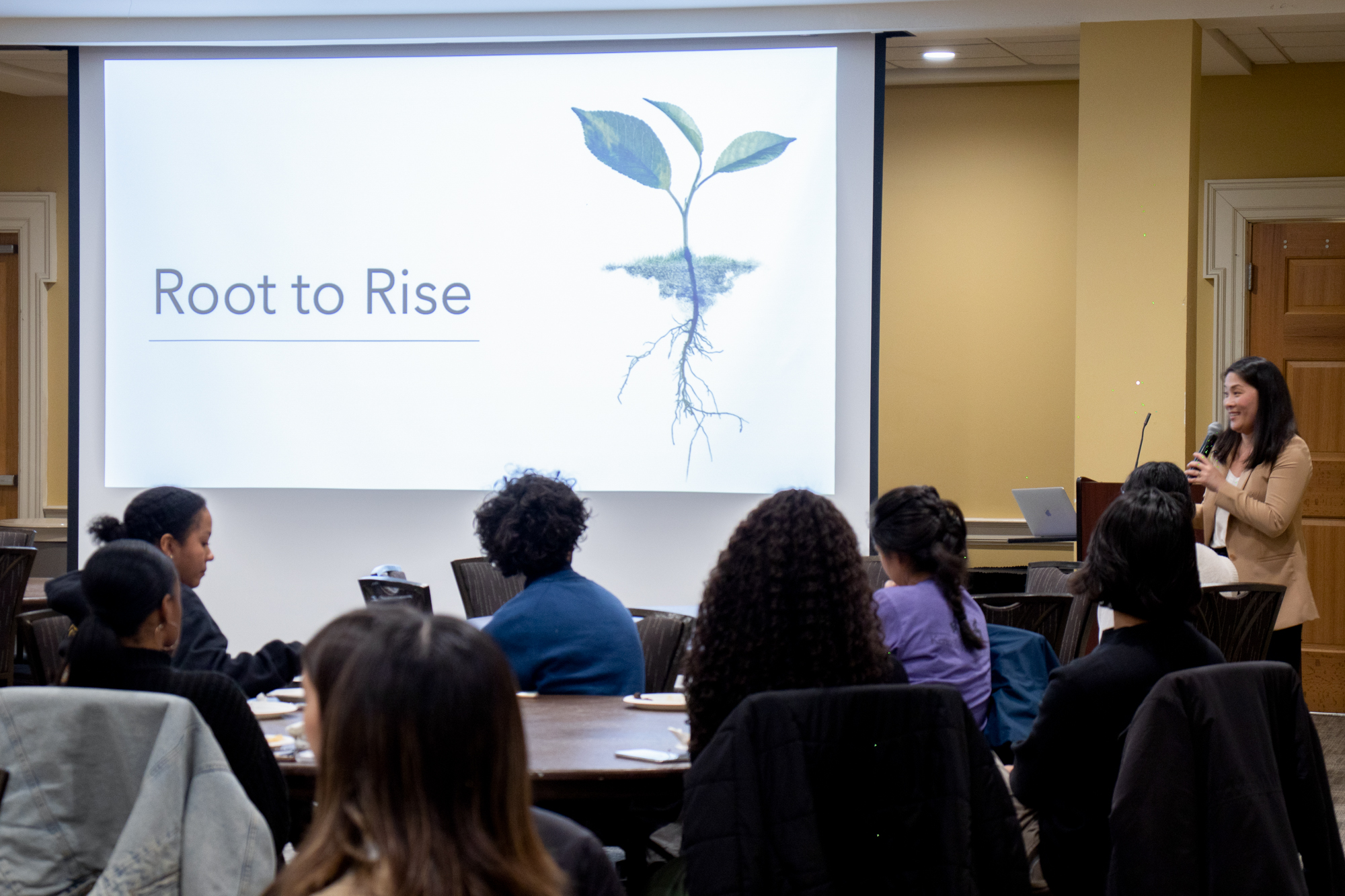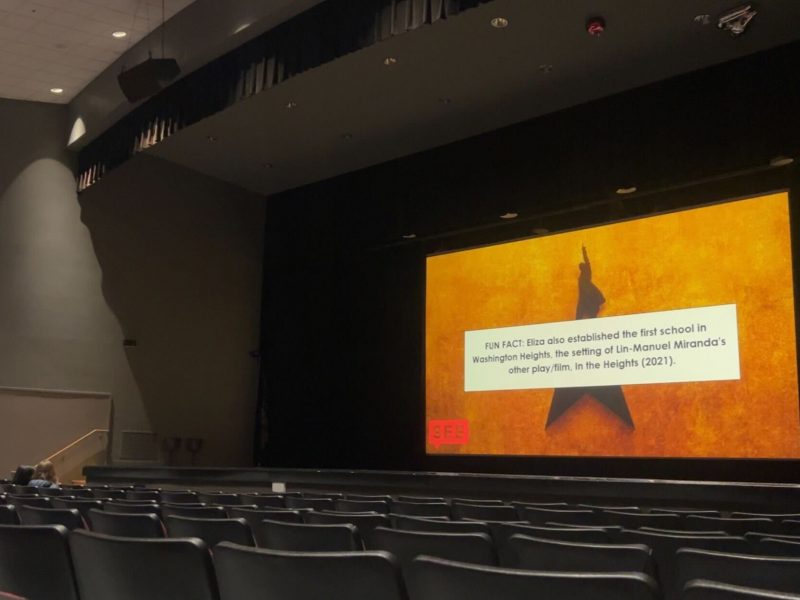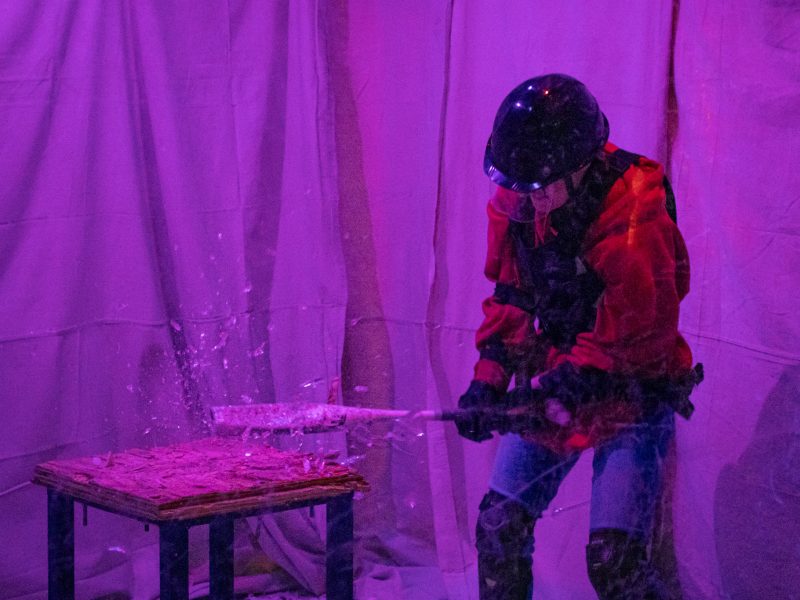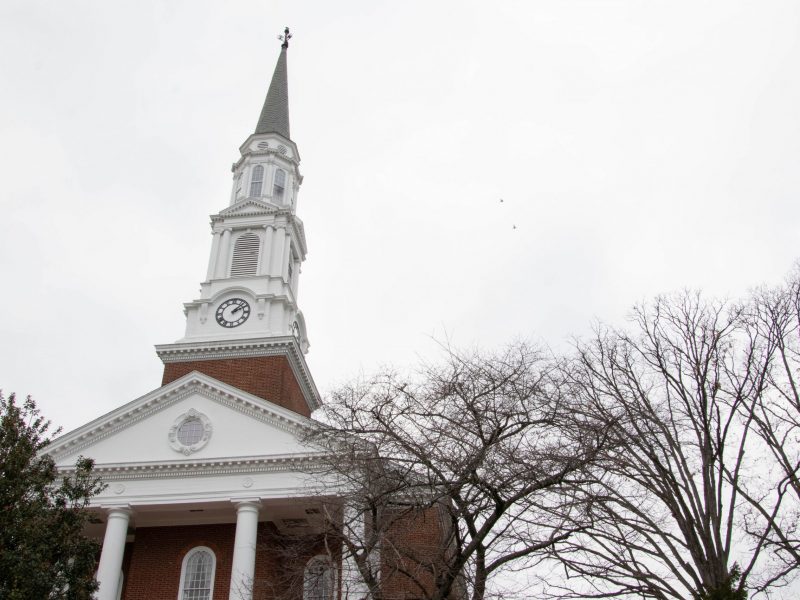An intimate crowd gathered Thursday evening in the Grand Ballroom of Stamp Student Union at the University of Maryland for “Root to Rise,” the keynote event to Multiracial Heritage Month.
Aeriel Ashlee, a University of Maryland alum as well as an assistant professor and graduate director of college counseling and student development at St. Cloud State University, lead the talk with the theme of “taking root,” where we may find our roots may not be solely about our biological or familial kinship, but that we can also find roots in other communities.
During her discussion Ashlee shared her transracial adoptee experience as well as how the experience has shaped her life and the work she does today. She was adopted by white parents from Seoul, South Korea, and was raised with a colorblind ideology in the 1980s.
Ashlee discussed her recent experiences of being in an interracial relationship with a white partner and being the mother to a multiracial daughter and how much that has deepened her roots in the community.
[Sam Levinson shouldn’t punish actors for providing input]
She also shared how transformative her experience was at this university as a graduate student.
“My experience was catalytic at Maryland in terms of my own racial identity formation. During those two years, I had my first Asian American faculty professor — I had never had an Asian American professor in undergrad and also my first Asian American mentor,” she said. “Even though I had, for the first time ever, access to these really powerful role models that reflected me and my community, I also always felt like an asterisk to my identity, like there was a caveat.”
Being a transracial adoptee made Ashlee feel like she was not really a part of the Asian and Asian American community, but throughout her journey she learned that being a transracial adoptee isn’t a limitation, but another facet of the Asian American experience.
Proving racial identity through performance or defying particular expectations placed on you is a common experience for people who come from transracial or multiracial backgrounds, Ashlee explained.
Ashlee also mentioned scholar and activist Gloria Anzaldúa and the framework Anzaldúa uses when talking about borderlands — a place of in-between, and reminded the audience that borderlands is a place of brilliance. But walking through the world, the borderland is often painful and mired with trauma and experiences that are challenging to process.
“There is incredible power in being able to be a part of both, so resisting and letting go of the forced perception that we have to choose one or the other … to dance on the border allows you to see the ways of which the construction is limited, not just for multiracial folks, not just for transracial adoptees, but even the ways in which racial essentialism … harms monoracial, Asian and Black people as well,” Ashlee said.
Embracing a transracial/multiracial background in a society where monoracial/monoethnic experiences are dominant can make it harder for people with these backgrounds to embrace their unique borderlands.
[I lost my freshman friend group, but it led to the mature friendships I have now]
“I grew up in a predominantly white area, and didn’t even know ‘Asian’ was a thing growing up, like when I was really young … It wasn’t until undergrad, so freshman year here at Maryland that I really thought about, like, ‘Oh I’m half Chinese half Indian, and it’s kind of a culture shock coming to Maryland … what I also found was I had a lot of imposter syndrome, racial imposter syndrome,” senior electrical engineering major Jay Lee said.
The evening followed with a meet and greet and Q&A with Ashlee in MICA’s Cozy Corner. It was a cathartic experience for some in the room.
“Her takes on affirming yourself and rooting yourself in your identity is definitely something that I’m able to apply in my own life, and being more sure and confident in my race and how I identify with my race, and even kind of how she said there’s no monolithic story behind being a Black woman,” said Taylor Jackson, a senior computer engineering major.
“Root to Rise” was a space where people who have struggled finding their place in this world felt a sense of hope and affirmation.



